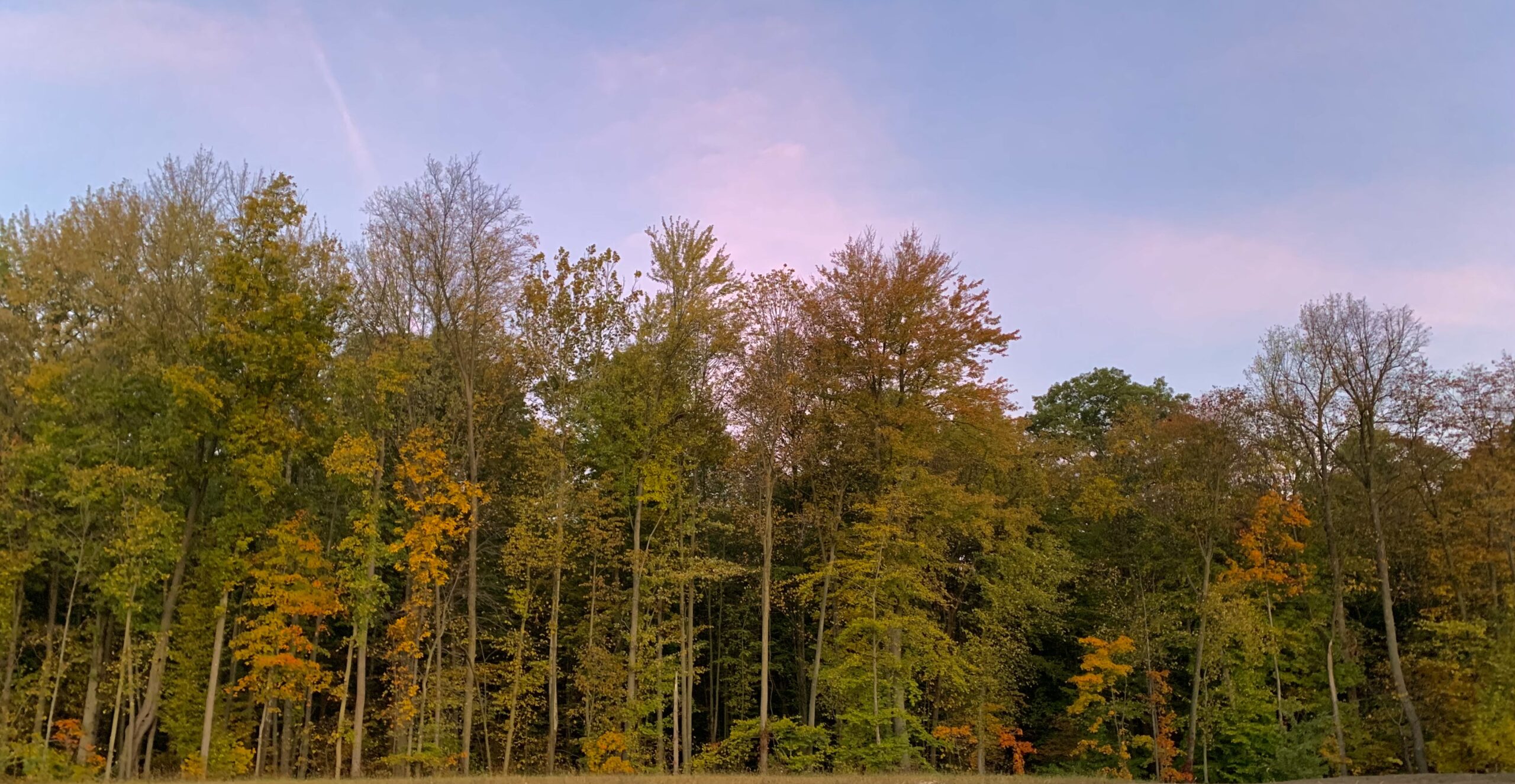Becky and I left the west coast nearly 33 years ago, but like others from the west, we retain much of the west coast snobbery about beauty in the natural world. Our version of the beauty of the earth tends toward the crashing waves of the Pacific, the granite ridges and the soaring sequoia of the Sierra Nevada, and the snow-clad peaks of the Cascade Range.
Our oldest daughter, an artist and a Midwesterner far longer than we have been Midwesterners, is helping us shed some of our scenic snootiness. One of the themes of her art is what she calls the “unexpected beauty” in this flat middle part of the country.
I’ve tried to keep my eyes open for unexpected beauty as summer has given way to fall. It is there. The leaves have begun to turn color with splashes of red, orange, and yellow all around. Harvest has come to the cornfields and most now lie fallow waiting for winter snow and spring planting.
“For the beauty of the earth, for the glory of the skies,” the old hymn sings. The words have been running through my mind as I’ve paused to take a second look at “hill and vale, and tree and flower, sun and moon, and stars of light.” Yes, there are small hills and vales in northeast Indiana.
Becky and I sometimes marvel at the reality of two west coasters who ended up retired in the Midwest. To be sure, Indiana does not have the crashing waves of the Pacific, the granite ridges and the soaring sequoia of the Sierra Nevada, or the snow-clad peaks of the Cascade Range. But there is beauty in this place and a different kind of glory in its skies.
According to hymnary.org, in the spring of 1863, Folliott S. Pierpoint sat on a hilltop outside his native city of Bath, England, admiring the country view and the winding Avon River. Inspired by the view to think about God’s gifts in creation and in the church, Pierpont wrote the words that became “For the Beauty of the Earth.”
The world of politics and international affairs, of public discourse and cultural posturing, has grown ugly. Friends are defined as those who agree with us and coddle our hurt senses of self. The church is one more disreputable institution, and peace on earth and joy in heaven are seasonal sentiments or foolish dreams.
We, too, would do well to tarry on hilltops literal or figurative to ponder God’s gift in creation and in the church. We need to see beyond the ugliness to the beauty all around. We need to listen for the crash of ocean waves and the song of morning birds over the noise of hate and hurt. We should ponder that “best Gift Divine, to our race so freely given” rather than being caught in the clashes of partisan politics.
Here is what Folliott Pierpoint wrote as he sat on that hill overlooking the winding Avon River:
For the beauty of the earth,
For the glory of the skies,
For the love which from our birth
Over and around us lies:
Refrain:
Lord of all, to Thee we raise
This our hymn of grateful praise.
For the beauty of each hour
Of the day and of the night,
Hill and vale, and tree and flower,
Sun and moon, and stars of light: [Refrain]
For the joy of ear and eye,
For the heart and mind’s delight,
For the mystic harmony
Linking sense to sound and sight: [Refrain]
For the joy of human love,
Brother, sister, parent, child,
Friends on earth, and friends above;
For all gentle thoughts and mild: [Refrain]
For Thy church, that evermore
Lifteth holy hands above,
Offering up on every shore
Her pure sacrifice of love: [Refrain]
For Thyself, best Gift Divine!
To our race so freely given;
For that great, great love of Thine,
Peace on earth, and joy in heaven: [Refrain]

